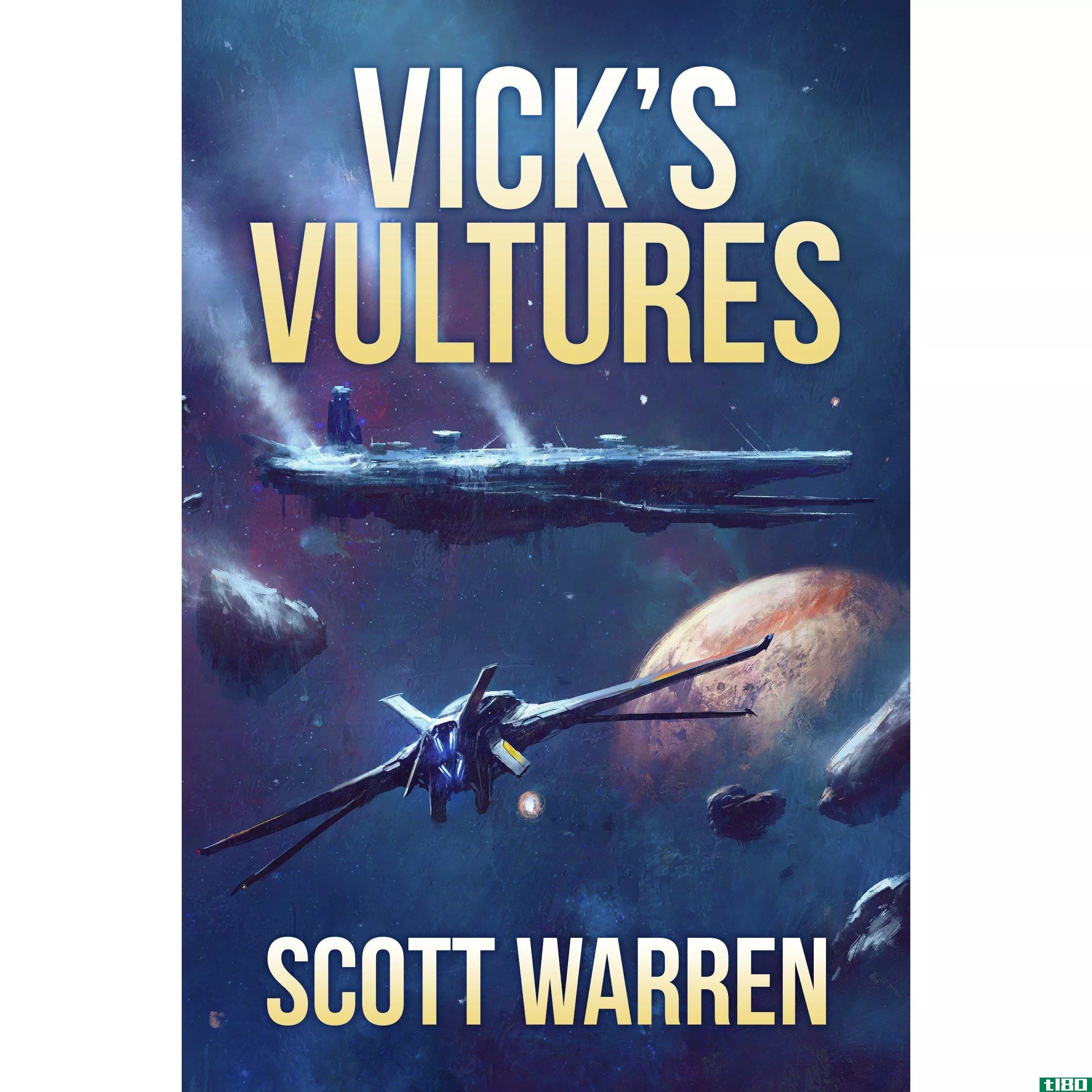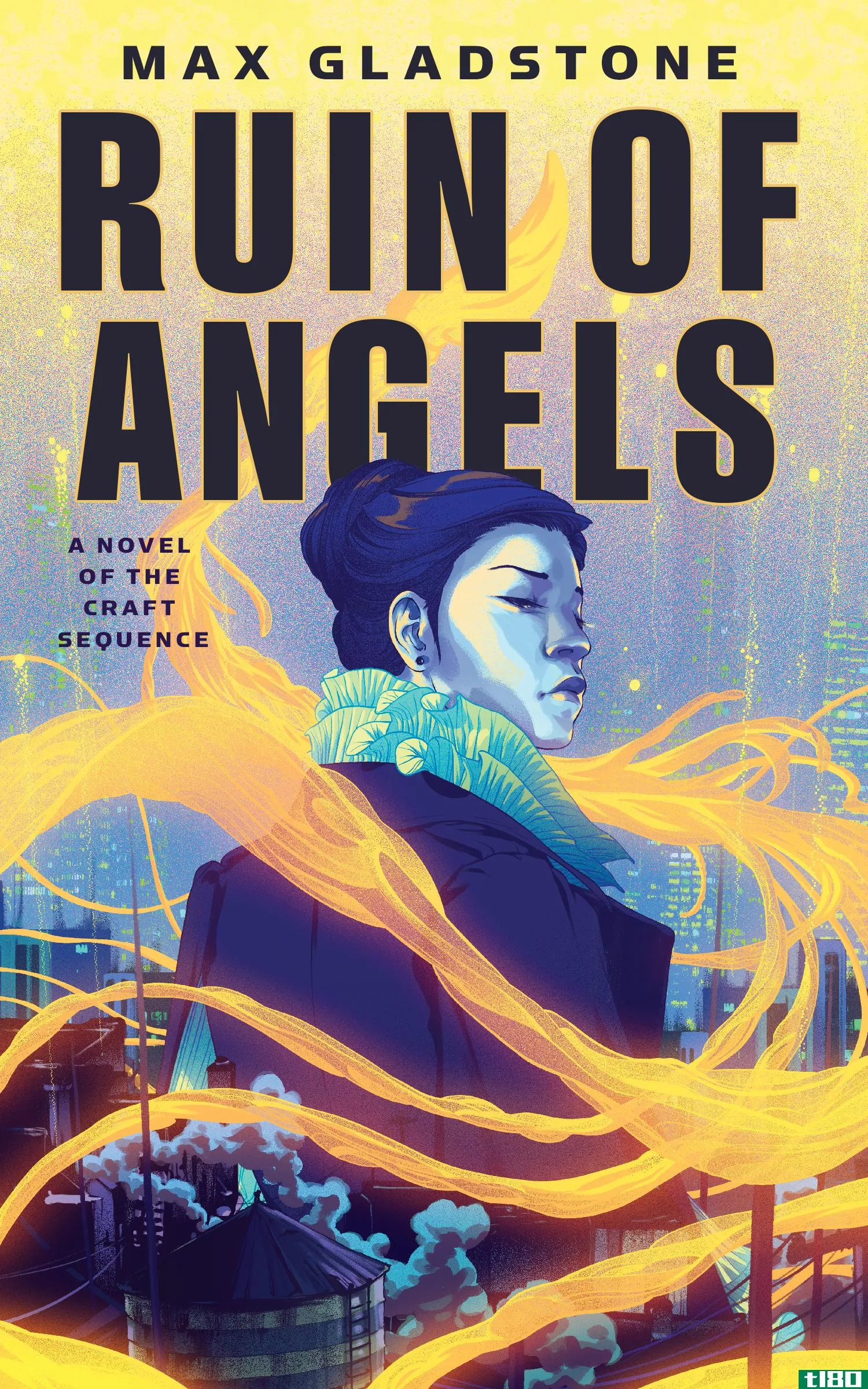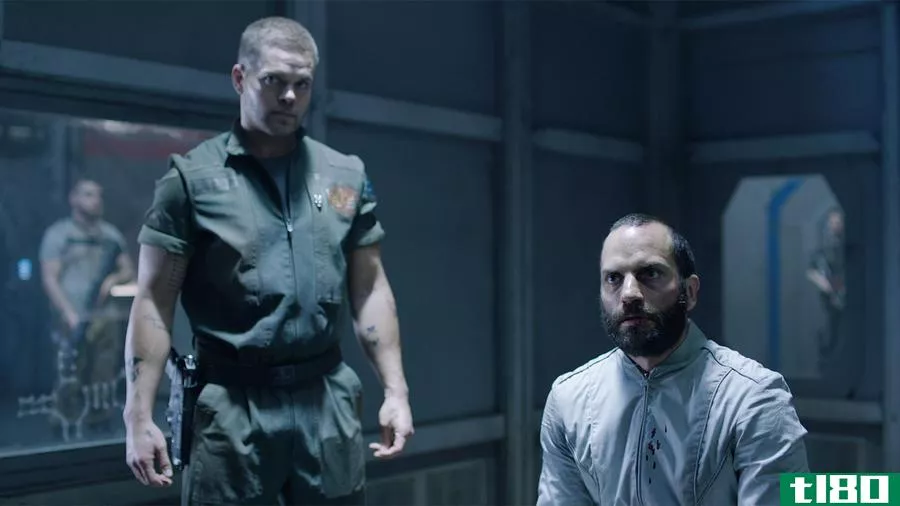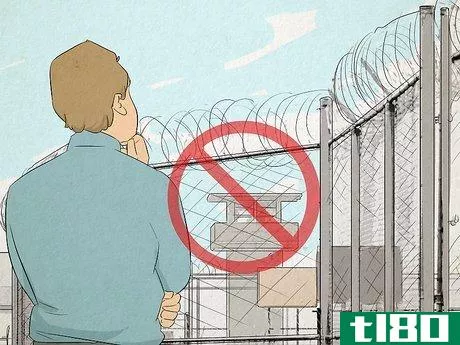在s.j.摩登科幻小说《单向》的一段摘录中,一名囚犯得到了一笔他无法拒绝的交易
长期以来,科幻小说作为一种类型一直痴迷于到达火星的可能性,既有安迪·威尔(Andy Weir)的小说《火星人》(the Martian)中的探险,也有金斯坦利·罗宾逊(Kim Stanley Robinson)的火星三部曲中的殖民。S.J.莫登的一部新小说《单向》就在这一点上:我们已经到达了火星,但现在,我们需要弄清楚如何建设一个文明。
在现代的未来,这项艰巨的任务被赋予了人类,各国**已与公司签订合同,开始建造殖民地,以供最终居住。虽然机器可以完成部分工作,但有些人愿意抄近路,派一队囚犯帮忙,把他们未使用的技能用于工作。弗兰克·基特里奇是一名被判有罪的杀人犯,也是八名被送往火星的人之一。每个人都会得到更好的住宿条件、**的环境和更多的个人自主权——从一个他们无法逃离的地方。让弗兰克接受这个提议已经足够了,但是在到达并开始工作后,弗兰克和其他人被一系列可疑的事故包围,在他们被杀之前,由他来找出他们背后的原因。
我们有《单向》的第一章,它于2018年4月10日在书店上架。
[Internal memo: Gerardo Avila, Panopticon, to Data Resources, Panopticon, 10/2/2046]
We are seeking inmates who fit the following profile:
serving either an indeterminate life sentence(s) or a fixed-term sentence(s) that extend beyond the inmate’s natural life-span.
has had a prolonged period (5 years +) of no contact with anyone on the outside: this includes, but is not exclusive to, family, friends, previous employers and/or employees, lawyers, journalists and authors, advocacy groups, external law enforcement, FBI, CIA, other federal organizati*** including immigration services.
has professional qualificati***, previous employment, or transferable skills in one of the following areas: transportation, c***truction (all trades), computer science/information technology, applied science, medicine, horticulture.
is not suffering from a degenerative or chronic physical or mental condition that would cause death or debilitation in the immediate (5 years +) future.
is currently in reasonable physical and mental health, between the ages of 21 and 60.
Please compile a list of potential candidates and send them to me by Friday.
Gerardo Avila,
Special Projects Coordinator, Panopticon
“Put your hands on the table.”
Frank’s hands were already cuffed together, joined by three steel links. His feet were also shackled. The seat he sat on was bolted to the ground, and the table in front of him was the same. The room was all wipe-clean surfaces. The **ell of bleach was an alkaline sting in the back of his throat and on the lids of his eyes. It wasn’t as if he could go anywhere or do anything, but he still complied with the order. Slowly, he raised his hands from his lap, feeling the drag of the metal biting into his skin, and lowered them onto the black vinyl covering of the table. There was a large hole drilled in it. Another length of chain was run through the circle made by his cuffed arms and into the hole. His guard put a padlock on it, and went to stand by the door they’d both entered through.
Frank pulled up to see how much slack he’d been given. The chain rattled and tightened. Ten, maybe eleven inches. Not enough to reach across the table. The chair didn’t move. The table didn’t move. He was stuck where he was for however long they wanted.
It was a change, though. Something different. To his left was a frosted window, bars on the outside, a grille on the inside. He looked up: a light, a length of fluorescent tube, humming slightly and pulsing in its wire cage. He could see the guard out of the corner of his right eye.
He waited, listening to the nearby hum and the more distant echoing sounds of doors slamming, buzzers rasping, voices shouting. These were the sounds that were most familiar to him. His own breathing. The soft scratch of his blue shirt. The creak of stress as he shifted his weight from leaning forward to sitting back.
He waited because that was all he could do, all he was allowed to do. Time passed. He became uncomfortable. He could only rest his hands on the table, and he couldn’t get up and walk around. Eventually he grunted. “So why am I here?”
The guard didn’t move, didn’t **ile. Frank didn’t know him, and wasn’t sure if he was one of the regular staff anyway. The uniform was the same, but the face was unfamiliar. Frank eased forward, twisted his arms so he could put his elbows on the table, and put his weight on them. His head drooped forward. He was perpetually tired, from lights on to lights out. It wasn’t an earned tiredness, a good tiredness. Having so little to do was exhausting.
Then there was the scrabble of a key at a lock, and the other door, the one facing him, that led to the free world, opened. A man in a suit came through, and without acknowledging Frank or the guard, put his briefcase on the table and pushed at the catches. The lid sprang open, and he lifted it to its fullest extent so that it formed a screen between Frank and the contents of the case.
The briefcase **elled of leather, earthy, rich in aromatic oils. The clasps and the corners were bright golden brass, polished and unscratched. They shone in the artificial light. The man pulled out a cardboard folder with Frank’s name on it, shut the briefcase and transferred it to the floor. He sat down—his chair could move—and sorted through his papers. “You can go now. Thank you.”
Frank wasn’t going anywhere, and the guard was the only other person in the room. The guard left, locking the door behind him. It was just the two of them now. Frank leaned back again—the other man was close, too close—and tried to guess what all this was about. He hadn’t had a visitor in years, hadn’t wanted one, and certainly hadn’t asked for this one, this man in a suit, with his tie and undone top button, his **ooth, tanned skin and well-shaved cheeks, his cologne, his short, gel-spiked hair. This free man.
“Mr Franklin Kittridge?” He still hadn’t looked up, hadn’t looked Frank in the eye yet. He leafed through the file with Frank’s name on the cover and California Department of Correcti*** and Rehabilitation stamped on it, turning the translucently thin pages covered with typeface. Paper and board. Everybody else would have used a tablet, but not the cash-starved CDCR.
“Well, if I’m not, both of us have had a wasted journey.”
It wasn’t much of a joke, but it seemed to break the ice, just a little, just enough for the man to raise his chin and steal a glance at Frank before looking down at the contents of the folder again.
Of course, no one had called him “Mr” Kittridge for years. Frank felt a long-dormant curiosity stir deep inside, where he’d shut it away in case it sent him mad.
“Can I get you anything?” the man asked. “Something to eat, drink?”
Frank cocked his head over his shoulder at the locked door behind him. Definitely no guard. He turned back. “You could start by telling me your name.”
The man c***idered the request. “You can call me Mark,” he said. His tell—a slight blink of his left eye—told Frank that he wasn’t really a Mark.
“If we’re on first-name terms, Mark, why don’t you call me Frank?”
“OK, Frank.” The man not called Mark closed the folder, opened it again, turned some pages. “So what are you in for, Frank?”
“I’m assuming you’re not carrying that file in front of you because you’re short of reading matter. I know you know what’s in it. You know that I know. So while this is a pleasant change of scenery, I’m still going to ask you why you’re here.”
Mark finally looked up, perhaps surprised by the directness aimed at him. “You know you’re going to die in here, right?” he said.
“I’m eligible for parole in eighty-five years. What do you think, Mark?” Frank twitched the corner of his mouth. That was his **ile these days. “Do you reckon I’ll make old bones?”
“You’d be—” Pause. “—one hundred and thirty-six. So, no. I don’t think so.”
“Well, dang. I was so looking forward to getting out.”
“You killed a man.”
“I know what I did. I know why I did it. But if you’re looking for contrition, maybe you should have asked for someone else.”
Mark put both his hands on the file. His fingers were long, with buffed, tapered nails. They glowed as brightly as the brass furnishings on his briefcase. “I want to know what you think about the prospect of dying in jail, Frank.”
After a moment’s reflection, Frank concluded: “I’m not a fan. But I factored the possibility in when I pulled the trigger, and now? I don’t see I have much of a choice.”
Mark took one of his elegant fingers and circled it around the seven-pointed star on the cardboard file’s cover. “I might be able to help you,” he said. “I might be able to give you a choice.”
“And how would you do that?” Frank raised his hands, and eased them down again, slowly enough for every link of the chain that bound him to the table to catch against the edge of the hole, then fall. “Why would you do that?”
“A private company owns this prison, and runs it on behalf of the state.”
“There’s a logo on everything I’m wearing. Few years back, the logo changed, but it was the same old prison walls. You’re telling me a lot of things I already know, Mark. I’m still waiting for you to tell me things I don’t.”
“You don’t want to hear me out?” said Mark. “That’s OK. That’s your right. But what if it’s something you might be interested in?” He sat back in his chair, and examined his pampered hands.
Frank put on his compliant face again. Inside, he was mildly irritated, but no more than that. “You asked for me, remember? Not the other way around. So, this company, this Panopticon? You work for them?”
“Technically, no. But I’ve been authorized by their parent company to see if you’d be interested in an offer. And before I tell you what it is, I want to tell you what it isn’t.” He left a gap to see if Frank said anything, but that wasn’t Frank’s style. “This isn’t a pardon. You’ll remain guilty of second-degree murder. This isn’t commuting your sentence. You’ll serve the rest of your hundred and twenty years. This isn’t parole. You’ll be at all times under a prison regime. Neither will you get time off for good behavior.”
Frank c***idered what he’d heard so far. “Go on,” he said. “You’re really selling it to me.”
“We can’t give you any of those things because we’re not allowed to. The State of California—the law—wouldn’t permit us to cut such a deal with you. What we can offer you is a transfer.”
“Panopticon have another jail somewhere else?”
Mark pursed his lips. It was the first emotional resp***e he’d really shown. Frank thought him, despite the expensive suit, the leather briefcase and the manicured hands, or perhaps because of them, a cold fish. A dead fish, even. “In a manner of speaking.”
“So why don’t you just transfer me? You don’t need my permission to do that.”
“No, that’s true enough. We need your co-operation, though.”
“Do you? I’m not really getting this whole thing, and you seem a straight-up kind of guy, so why not just lay it out?”
Mark doodled with his finger on the cover of Frank’s file again. “Given everything I’ve said, are you still in?”
“In for what? All you’ve told me is that I’m still going to die in jail. Does it really matter where the jail is?”
“You weren’t just chosen at random, Frank. You have skills. A lot more than many—most—of the inmates incarcerated here. Skills that are going to waste. Would you like to use them again?”
“You want me to build you the prison that I’m going to die in?”
“In a manner of speaking,” Mark said again.
Frank tried to sit more comfortably in his chair, but his chained hands wouldn’t let him. He frowned at the pristine Mark opposite him. “And this is to save you money?”
“To save the parent company money,” Mark corrected him. “Yes, that’ll happen.”
“Mark, I have to say I’m struggling to understand what’s in this for me.”
“The benefits will be: better food, better accommodation, a **all team to work with, a challenging, stimulating environment, an utterly unique project, and c***iderable personal autonomy. It won’t feel like jail. It certainly won’t feel like the regime you’re under now, that I can guarantee you.”
“But I still wouldn’t be able to leave, would I?”
“No. This would be a transaction where you’d have to remain on the site in order to help maintain it,” said Mark. “That doesn’t mean there wouldn’t be free time for you to, how do I put it, enjoy the surrounding countryside. You’d always have to return, though. It’s in a somewhat isolated position, and there’s literally nowhere else to go.”
“Where is this, then? The desert?”
“Initially, yes. You’ll need to undergo some specialist training at a privately owned facility. Medical tests, too. If you refuse to co-operate in or fail to complete any of the tasks the company set, you’ll be bounced straight back here. No appeal. No hesitation, either. Likewise, if you fail on medical grounds.” Mark put his hands back flat on the folder. “Are you still interested?”
“Without committing myself, yes, sure. I’m still waiting for the sucker punch, though. Tell me there’s a sucker punch.”
“If you accept the conditi*** I’ve already stipulated, then I’ll outline the project more explicitly.”
“You’re starting to sound like a lawyer.”
Mark gave his tell again, and said nothing other than: “Do you accept the conditi***?”
“OK.”
“Yes?” He was playing games with the language, and it seemed Frank had to play along too. This was legal boilerplate, and it had suddenly become obvious that this whole conversation was being recorded.
“Yes. I accept the conditi***,” he intoned.
Mark took a deeper breath, and Frank felt like he’d crossed some sort of threshold, an invisible line in his life. A faint wash of sweat broke out across his face, and his hands grew slick.
“Your training will take almost a year. There’s a specific deadline we can’t go beyond, and either you’re ready, or you’re not. The training facility is, yes, in the desert. There’s some very specialized equipment you’ll need to be totally familiar with, and your background in c***truction and project management will hopefully mean you won’t have a problem with that. You’ll be introduced to the rest of your team, and you’ll learn to work together, learn to trust each other, learn to rely on each other.”
“How many?”
“Eight altogether.”
“And are they in the same position I am?”
“Seven of them, yes. One company employee will be on site to oversee the project.”
“Will the others be ex-prisoners too?”
“Serving prisoners.”
“And they have to stick around after we’ve finished this building work, too?”
“Yes.”
Frank looked over to the bright window, then back. “I’d better like them, then.”
“That’s not the company’s concern. Merely whether you can work with them.”
“So where is this place, that you want to send seven c*** to, to build you a prison and then stay there for the rest of their lives?”
“Mars.”
Frank turned to the window again, and stared at the blurred parallel lines of the bars that divided the outside from the inside. There were seven of them, maybe six inches apart. They’d be iron, swollen with rust, peeling and flaking paint pushing off their surfaces like sloughing skin. “You did say Mars, right? As in the planet?”
“Yes. The planet Mars.”
Frank thought about it a little longer. “You have got to be ****ing kidding me.”
“I assure you the offer is most genuine.”
“You want a bunch of c*** to go to Mars? And build a prison? And then stay there?”
Mark wiped his hands on his suit trousers, a luxury that Frank didn’t have. “It’s not designated as a prison, but as a federal scientific facility. Let me explain, in order. A convict crew will be sent to Mars. Once there, they will c***truct a base from prefabricated parts and make it habitable. When the facility is finished, the crew will continue to live on Mars and serve out the rest of their sentences, helping to maintain the facility, expanding it as and when required, and assisting visiting civilian scientists in their work. That the facility will also be your prison is, I suppose, a somewhat technical detail. But as I’ve already explained, there’ll be nowhere to escape to.”
Frank nodded slowly to himself as he digested the information.
“You haven’t rejected the idea out of hand,” said Mark.
“Just give me a minute. I’m thinking.”
Once the insanity had been stripped away, it was actually a straightforward offer: die in prison or live on Mars. He was never getting out of this penitentiary alive: he’d been sentenced to a hundred and twenty years for shooting a man in the face, in broad daylight, in front of a crowd of witnesses. Only the fact that he could prove that the dead man was his son’s dealer saved him from going down for murder in the first, and onto death row.
He hadn’t contested the charges. He hadn’t spoken in his own defense. He’d taken what was coming, and he was still taking it. By mutual c***ent, his wife and his son had disappeared after the trial and they’d both moved a very long way away. Bad people, like the associates of the man he’d killed, had long memories, and longer reaches. No one had ever contacted him subsequently, and he’d never tried to contact anyone either. No, tell a lie: he’d had one message, maybe a year into his sentence. Divorce papers, served out of a New Hampshire attorney’s office. He’d signed them without hesitation and handed them back to the notary.
There was literally nothing for him here on Earth but to die, unremembered and unremarked on.
But Mars?
He’d heard the news about the plans for a permanent Mars base, back when he was a free man, but he couldn’t honestly say he’d paid much attention to it: he’d been in the middle of hell by then, trying to do the best thing for his family, and failing. And afterwards? Well, it hadn’t really mattered, had it? Someone was putting a base on Mars. Good for them.
He hadn’t thought for the **allest fraction of a moment of a second that it might include him.
Now, that would be a legacy worth leaving. Somewhere, his son was grown up, hopefully living his life, hopefully doing whatever he was doing well. He’d been given a second chance by Frank, who had loved him more than life itself, even if he’d had a strange way of showing it.
Did the boy think about his father? At all? What would it be like for him to suddenly discover that his old man was an astronaut, and not a jailbird? “This is the big Mars base, right?” Frank asked. “The one they announced a few years back?”
“Mars Base One. Yes.”
“That’s… interesting. But why would you pick c***? Why wouldn’t you pick the brightest and the best and let them be the goddamn heroes? Or did you already throw this open to the outside world, and there weren’t enough young, fit, intelligent people with college educati*** and no rap sheet beating down your doors for an opportunity like this. Is that it? You’re desperate?”
Mark stroked his top lip. “It’s because, while the company wants to minimize the risks involved, it can’t completely eliminate them. And when a young, fit, intelligent person with a college degree dies, the publicity is terrible. Which is why they’ve offered you this opportunity instead. There’s also the need to prove that this isn’t just for the very brightest. Antarctic bases need plumbers and electricians and cooks. Mars bases will too. The company wants to show the world that, with the right training, anyone can go.”
Frank hunched forward. “But couldn’t you just hire the right people?”
“Frank, I’m going to level with you. Arranging a big spaceship, that costs a lot of money and time to build, which will take people out there, and will also bring them home? That isn’t a priority right now. As it stands, the company get something out of this, and you get something out of this. They get their base built, quickly and yes, cheaply. You get to spend the rest of your life doing something worthwhile that’ll benefit the whole human race, rather than rotting to death in here. Quid pro quo. A fair exchange.”
Frank nodded again. It made some sort of sense. “OK, I get that you don’t want the pretty people dying up there, but just how dangerous is this going to be?”
“Space is a dangerous place,” said Mark. “People have died in the past. People will die in the future. Accidents happen. Space can, so I’m told, kill you in a very great number of different ways. We don’t know what your life expectancy on Mars will be. We’ve no data. It may well be attenuated by a combination of environmental factors, which you’ll learn about in your training. But you’ll be able to minimize the risks and increase your chances of survival greatly by following some fairly straightforward rules. Whereas the average life expectancy behind bars is fifty-eight. You’re currently fifty-one. You can do the math.”
“Mars.”
“Yes, Mars.”
Frank poised the tip of his tongue between his teeth, and bit lightly. He could feel himself on the threshold of pain, and that was the closest he ever got these days to feeling anything. But to feel pride again? Achievement? To think that his son would be able to look up into the night sky and say, “There he is. That’s where my father is.”
Were those good enough reas***? He wouldn’t be coming back: then again, he wasn’t really here either. It’d be a second chance for him, too.
“Where do I sign?”
- 发表于 2021-08-23 04:23
- 阅读 ( 99 )
- 分类:互联网
你可能感兴趣的文章
今年10月将有19本科幻小说和奇幻小说上架
...子。 维克的秃鹫,斯科特·沃伦 我们喜欢一部好的军事科幻小说,而斯科特·沃伦的新书《维克的秃鹫》似乎会成为我们的最佳选择。设定在遥远的未来,地球在外星技术的帮助下已经进入恒星。维多利亚·马林是一名船长,他...
- 发布于 2021-05-08 01:21
- 阅读 ( 189 )
这是马克斯·格莱斯顿的下一部手工艺小说的封面和摘录
...以及《探路者》与Paizo合作的小说。当巴恩斯和诺布尔的科幻小说;奇幻博客相继爆出一本新书的消息。 该系列将转向Tor's Tor.com imprint,专门**短篇小说和中篇小说。封面艺术风格将发生变化,该系列将摒弃定义前五部小说的无...
- 发布于 2021-05-09 18:02
- 阅读 ( 99 )
探索广阔:看待移情的三种方式
...tic、Miller和Holden被排除在外是可以理解的。约翰逊把剩下的一名科学家科塔泽关进一间牢房,在那里他伤害了其他几个囚犯。 在那里他们意识到科塔泽和其他被他们抓获的人有些不对劲。它们被改变了。一名车站医生进行了一...
- 发布于 2021-05-09 18:36
- 阅读 ( 138 )
《了不起的盖茨比》情节提要
...·威尔逊,她住在“灰烬谷”,这是西卵城和纽约市之间的一片土地,贫穷的工人生活在那里,周围都是工业废料。尽管有了这些新的知识,尼克还是和汤姆一起去了纽约市,在那里他们参加了一个聚会,汤姆和默特尔在一起的...
- 发布于 2021-09-03 19:57
- 阅读 ( 329 )
米兰达权利:你的沉默权
...米兰达权利”声明的释义示例,以及最高法院判决的相关摘录。 1.你有权保持沉默 法院:“从一开始,如果一个被拘留的人要接受审讯,他必须首先得到明确无误的通知,他有权保持沉默。” 2.你说的任何话都可能在法庭...
- 发布于 2021-09-05 03:42
- 阅读 ( 191 )
让·保罗·萨特的短篇小说《墙》
...立即被派遣,巴勃罗等待他们的归来和处决。然而,过了一段时间,他被允许加入院子里那些没有等待处决的囚犯的尸体,被告知他至少现在不会被枪杀。他不明白这一点,直到另一名囚犯告诉他,拉蒙·格里斯从他的老藏身处...
- 发布于 2021-09-09 16:56
- 阅读 ( 362 )
纳尔逊·曼德拉
...,Rolihlaha的意思是“麻烦制造者”。曼德拉的姓氏来自他的一位祖父。 曼德拉的父亲是姆韦佐地区Thembu部落的首领,但在执政的英国政府的领导下服役。作为皇室后裔,曼德拉成年后被期望担任父亲的角色。 但当曼德拉还是...
- 发布于 2021-09-14 03:35
- 阅读 ( 146 )
十大“淫秽”文学经典
... 詹姆斯·乔伊斯的《尤利西斯》(1922) 当《尤利西斯》的一段摘录在1920年的一本文学杂志上连载时,纽约扫黄协会的成员们对这部小说的手淫场景感到震惊,并自行阻止了这部作品在美国的出版。1921年,一家初审法院审查了...
- 发布于 2021-09-17 07:44
- 阅读 ( 311 )
十字军东征:阿克里的围攻
...军提出的条件。萨拉丁增援该城的努力失败了,在7月11日的一场大战之后,驻军再次提出投降。这被接受了,十字军进城。在胜利中,康拉德将耶路撒冷、英国、法国和奥地利的旗帜高举在城市上空。 后果: 城市被俘后...
- 发布于 2021-09-21 11:39
- 阅读 ( 193 )
罗伯特·汉森,成为苏联间谍的fbi探员
...的情报失误之一,因为汉森是美国联邦调查局反情报部门的一名间谍。反情报部门是联邦调查局负责追踪外国间谍的高度敏感部门。 与早期的冷战间谍不同,汉森声称没有出卖国家的政治动机。在工作中,他经常谈到自己的...
- 发布于 2021-09-22 04:27
- 阅读 ( 190 )















